
Mahina: A Tranquil Gem in Tahiti
Nestled on the northeastern coast of Tahiti, Mahina is a serene neighborhood that offers a harmonious blend of natural beauty and cultural heritage. Known for its lush landscapes and clear waters, Mahina is an ideal destination for those seeking both relaxation and adventure. The area is home to the famous Pointe Vénus, where Captain James Cook observed the transit of Venus in 1769, adding a historical touch to its stunning scenery. Mahina's beaches are perfect for sunbathing and snorkeling, with vibrant coral reefs just waiting to be explored. The nearby mountains offer excellent hiking opportunities, providing panoramic views of the Pacific Ocean and the surrounding islands. The neighborhood's local markets and eateries serve delicious Polynesian cuisine, allowing visitors to savor the flavors of the region. Culturally, Mahina is rich with traditions and local crafts. Visitors can explore artisan shops featuring handmade jewelry and traditional Tahitian tattoos. The community is warm and welcoming, making every visitor feel at home. Whether you're interested in history, nature, or simply unwinding by the beach, Mahina has something special to offer.
Local tips in Mahina
- Visit Pointe Vénus early in the morning to avoid crowds and enjoy the tranquil atmosphere.
- Bring reef-safe sunscreen to protect the vibrant coral reefs while snorkeling.
- Try the local poisson cru, a Tahitian dish made with raw fish marinated in lime juice and coconut milk.
- Explore the hiking trails in the nearby mountains for breathtaking views and a closer look at Tahiti's lush landscapes.
- Check out the local markets for unique handmade crafts and souvenirs.
Mahina: A Tranquil Gem in Tahiti
Nestled on the northeastern coast of Tahiti, Mahina is a serene neighborhood that offers a harmonious blend of natural beauty and cultural heritage. Known for its lush landscapes and clear waters, Mahina is an ideal destination for those seeking both relaxation and adventure. The area is home to the famous Pointe Vénus, where Captain James Cook observed the transit of Venus in 1769, adding a historical touch to its stunning scenery. Mahina's beaches are perfect for sunbathing and snorkeling, with vibrant coral reefs just waiting to be explored. The nearby mountains offer excellent hiking opportunities, providing panoramic views of the Pacific Ocean and the surrounding islands. The neighborhood's local markets and eateries serve delicious Polynesian cuisine, allowing visitors to savor the flavors of the region. Culturally, Mahina is rich with traditions and local crafts. Visitors can explore artisan shops featuring handmade jewelry and traditional Tahitian tattoos. The community is warm and welcoming, making every visitor feel at home. Whether you're interested in history, nature, or simply unwinding by the beach, Mahina has something special to offer.
Iconic landmarks you can’t miss
Belvédère du Tahara'a
Explore the breathtaking Belvédère du Tahara'a, an observation deck offering panoramic views of French Polynesia's stunning landscapes and azure waters.
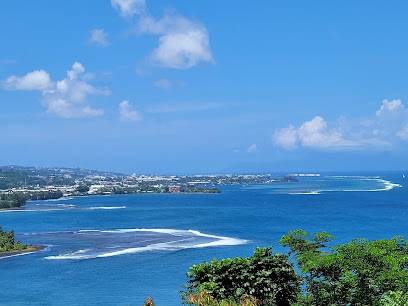
Pointe Vénus
Experience the serene beauty of Pointe Vénus in French Polynesia, a perfect blend of stunning beaches and rich history.
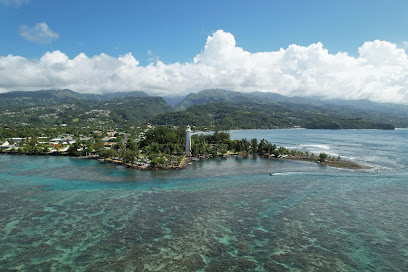
Phare de la Pointe Vénus
Discover the historical charm of Phare de la Pointe Vénus, a stunning lighthouse in Mahina, French Polynesia, offering breathtaking ocean views and rich maritime heritage.
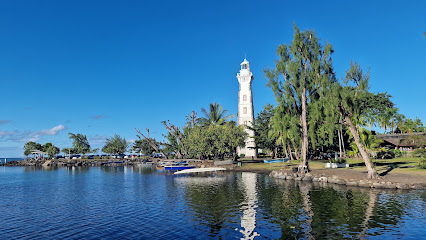
Tomb of King Pōmare V
Explore the Tomb of King Pōmare V, a serene monument to Tahiti's royal heritage, surrounded by stunning natural beauty and rich history.
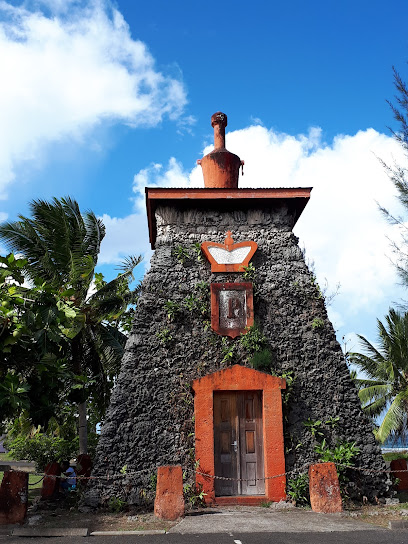
Tapahi
Discover the stunning vistas from Tapahi, an idyllic observation deck in Mâhina, French Polynesia, where nature and tranquility meet.

L'imprévu
Experience the culinary delights of L'imprévu in Mahina, French Polynesia, where fresh local ingredients meet breathtaking ocean views.
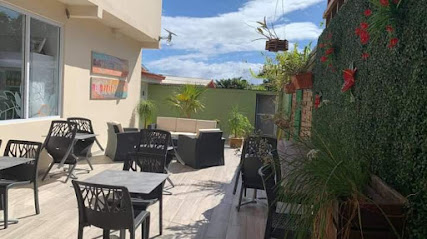
Hitimahana
Discover the tranquil beauty of Hitimahana, a hidden beach paradise in French Polynesia, perfect for relaxation and marine exploration.
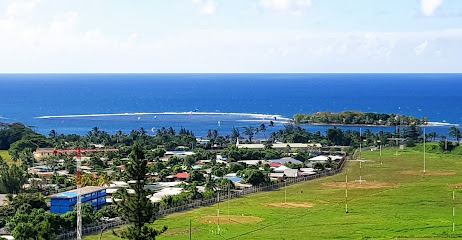
HMS Bounty Memorial
Explore the HMS Bounty Memorial in Mâhina, a serene tribute to maritime history surrounded by breathtaking landscapes of French Polynesia.
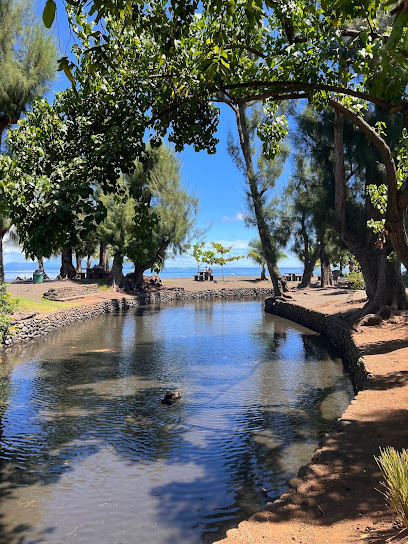
Cook's First Voyage Memorial (1769)
Discover the legacy of exploration at Cook's First Voyage Memorial in Mâhina, a stunning historical landmark celebrating Captain James Cook's journey to the South Pacific.
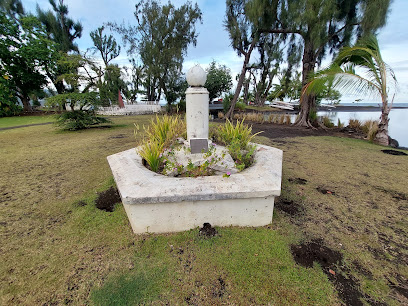
ExpériencesTahiti AndFenua ByMaite
Immerse yourself in the vibrant culture of French Polynesia at Expériences Tahiti And Fenua By Maite, a unique attraction in Māhina.

Ville de Mahina
Discover the historical charm and stunning landscapes of Ville de Mahina, a must-visit destination in the heart of French Polynesia.
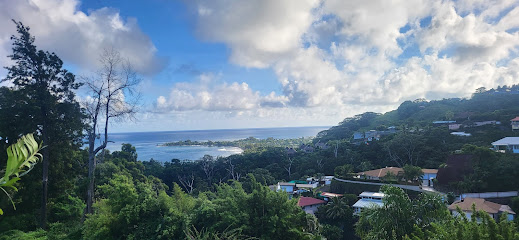
Unmissable attractions to see
Arahoho Blowhole
Witness Tahiti's raw power at Arahoho Blowhole: where crashing waves create a spectacular geyser along a dramatic coastline.
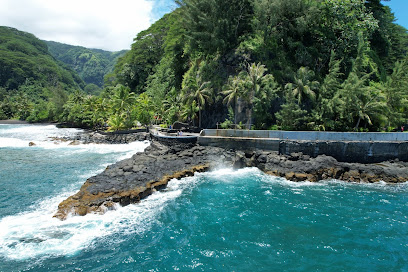
Fa'aruma'i Waterfalls
Discover the majestic Fa'aruma'i Waterfalls in Tahiti: a trio of stunning cascades surrounded by lush rainforest and steeped in local legend.
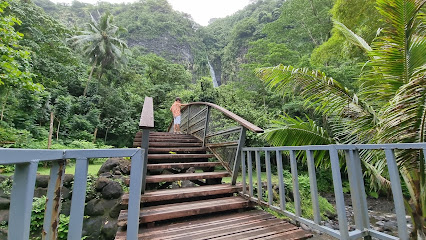
Marae Fare Hape
Discover the ancient traditions and spiritual heritage of Polynesia at the serene Marae Fare Hape in Tahiti.
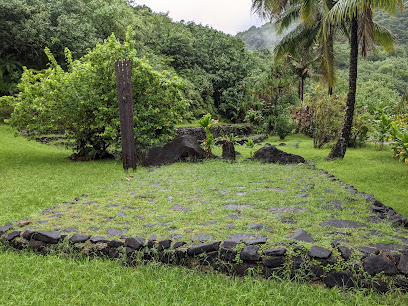
MANUA Exquisite Tahitian Art
Discover unique Polynesian masterpieces at MANUA Exquisite Tahitian Art, showcasing local artists' carvings in wood, stone, and mother-of-pearl.
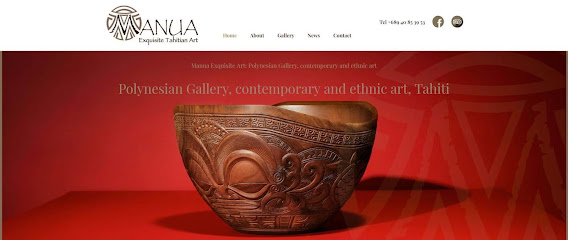
Cascade de Fautaua
Hike through history to Tahiti's tallest waterfall, Cascade de Fautaua, for stunning views and natural pools. A challenging trek into the island's heart.
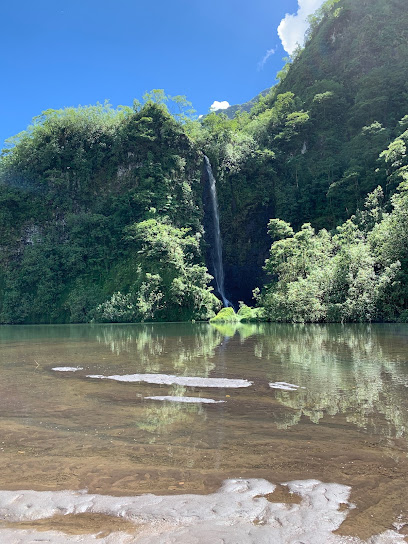
Essential places to dine
Mama's Beach House
Experience exquisite Polynesian cuisine at Mama's Beach House while enjoying breathtaking ocean views in beautiful Māhina.
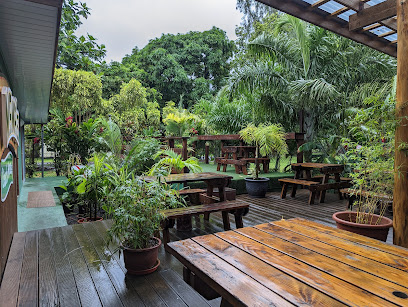
L'imprévu
Experience exquisite local cuisine at L'imprévu in Māhina, where every dish tells a story and every bite transports you to paradise.
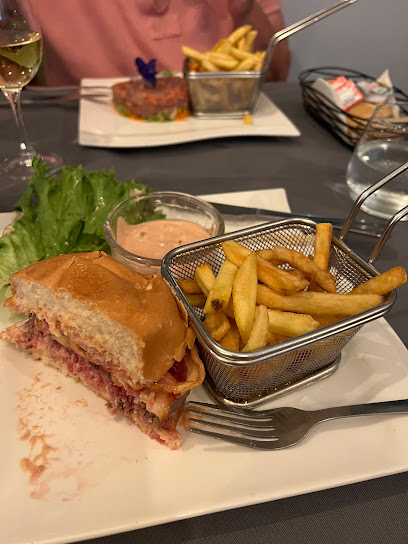
Le Patio
Discover exquisite local cuisine at Le Patio in Māhina—where every meal is a celebration of French Polynesian flavors.
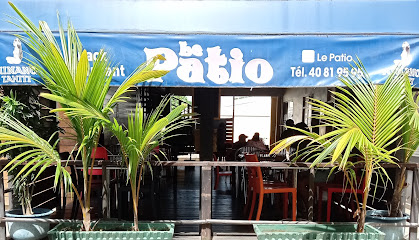
MICHOU
Experience the essence of French Polynesian cuisine at MICHOU, where every dish tells a story of local flavors and vibrant culture.
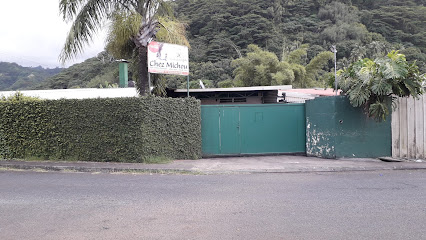
Pizz'burger Mahina
Discover Pizz'burger Mahina: A vibrant dining spot serving delicious burgers infused with island flavors in beautiful Māhina, French Polynesia.
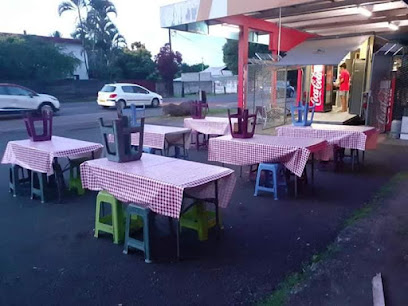
Roulotte À kiki
Experience authentic French Polynesian cuisine at Roulotte À Kiki in Māhina—where every dish is a taste of paradise.
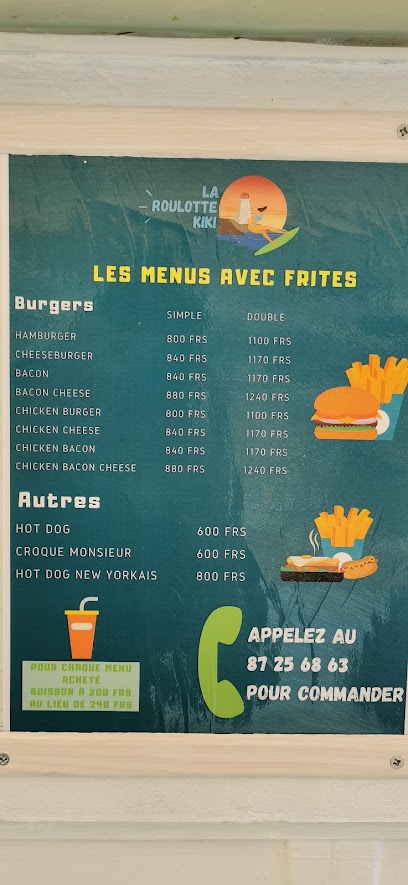
Wong Paul
Experience authentic French Polynesian cuisine at Wong Paul in Mahina - where local flavors meet warm hospitality.

Chez Pavo
Experience the authentic taste of Polynesia at Chez Pavo – where barbecue meets breathtaking beauty in Mahina.
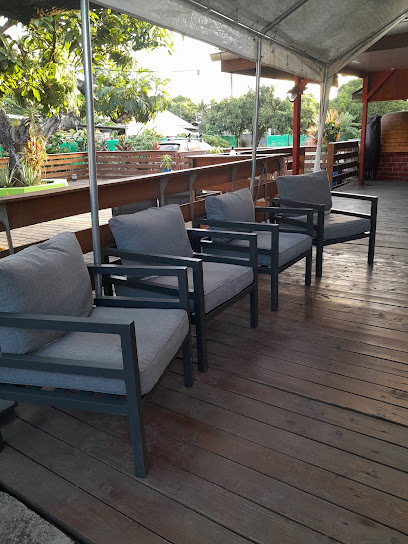
TAHITI la tahitienne a/v général
Experience authentic seafood dining at La Tahitienne in Māhina - where every bite celebrates the essence of French Polynesia.

Buffet maa tahiti
Experience exquisite flavors at Buffet Maa Tahiti - where local cuisine meets tropical paradise in Māhina.

Markets, malls and hidden boutiques
Champion
Explore Champion Supermarket in Māhina for an authentic shopping experience filled with local flavors and unique souvenirs in French Polynesia.
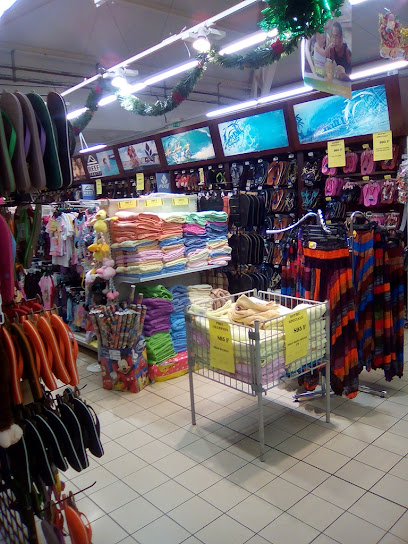
Super Marché Mahina
Experience the vibrant flavors of French Polynesia at Super Marché Mahina, your local grocery store for fresh produce and unique culinary delights.
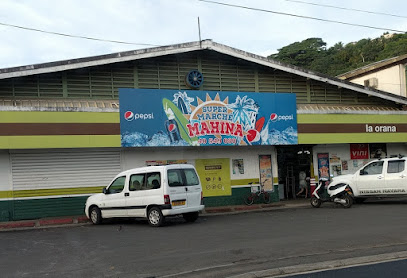
Top News Mahina
Explore Top News Mahina for unique fashion accessories that capture the essence of French Polynesia's rich culture and vibrant style.
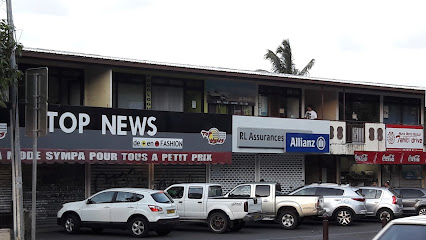
Olipearl Tahiti
Explore Olipearl Tahiti, where exquisite jewelry meets the vibrant culture of French Polynesia, offering unique treasures for every traveler.
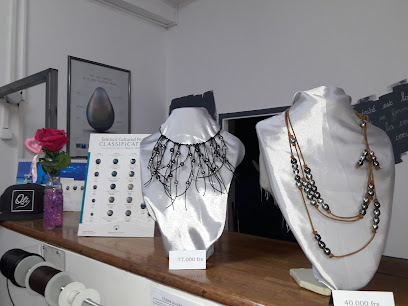
Fare Artisanal Niu Fa
Discover the essence of French Polynesia at Fare Artisanal Niu Fa, where local craftsmanship meets vibrant culture in every unique gift.

Tahiti East Coast Lifestyle
Experience the spirit of Tahiti through custom designs at the East Coast Lifestyle store, where every t-shirt tells a story of Polynesian culture and beauty.

Fenua Shopping
Explore Fenua Shopping in Arue, French Polynesia - your go-to destination for unique gifts and authentic local treasures.
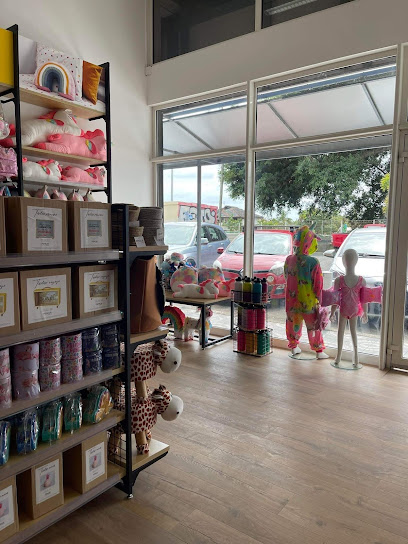
Pura Pura Shop
Explore Pura Pura Shop in Māhina, French Polynesia, for unique clothing and handcrafted treasures reflecting the island's vibrant culture.

Lucky Store
Discover unique stationery and local crafts at Lucky Store in Māhina, French Polynesia - a charming paper store for memorable souvenirs.
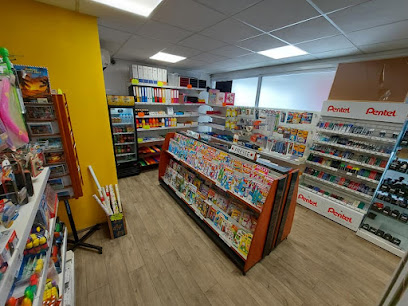
Les Chaplines
Explore Les Chaplines in Māhina, where unique fashion accessories blend local craftsmanship with the vibrant spirit of French Polynesia.
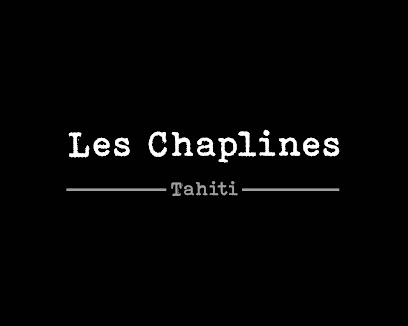
Essential bars & hidden hideouts
Mama's Beach House
Experience the flavors of French Polynesia at Mama's Beach House, where fresh seafood meets stunning ocean views in a vibrant atmosphere.
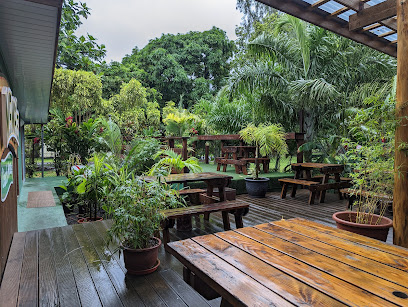
L'imprévu
Discover L'imprévu, a culinary haven in Māhina, French Polynesia, blending local ingredients with exquisite flavors for an unforgettable dining experience.
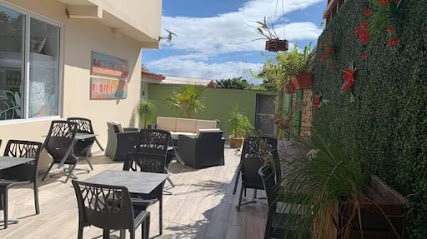
Le Patio
Discover the flavors of French Polynesia at Le Patio, a delightful restaurant in Māhina offering exquisite local and international dishes.
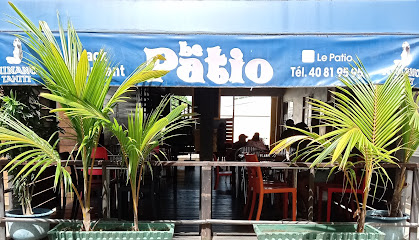
MICHOU
Experience the culinary delights of Michou in Māhina, where local flavors meet a warm, inviting atmosphere for an unforgettable dining experience.
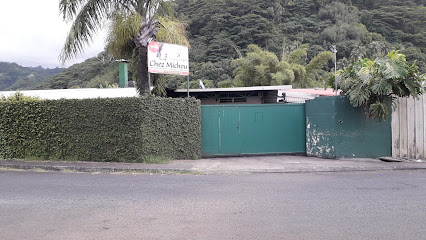
Pizz'burger Mahina
Explore the flavors of French Polynesia at Pizz'burger Mahina, where gourmet burgers and pizzas meet stunning coastal views.
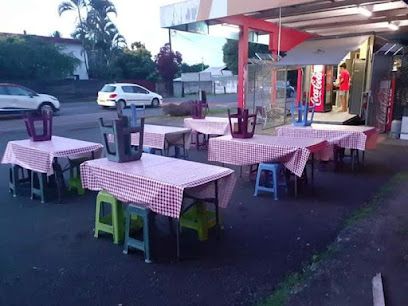
Waimea Churros (Chez Waimea)
Discover the irresistible churros at Waimea Churros in Māhina, a sweet treat paradise in stunning French Polynesia.
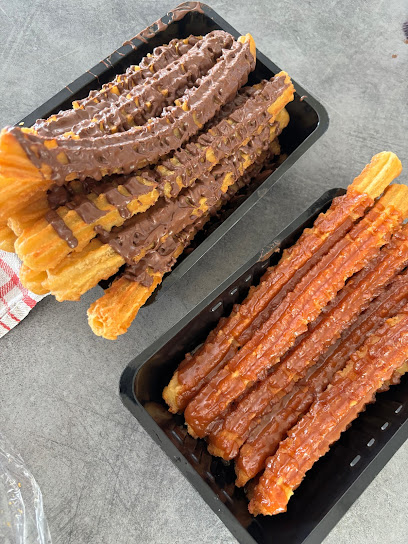
Roulotte À kiki
Discover the flavors of French Polynesia at Roulotte À kiki in Māhina, where local cuisine meets warm hospitality in a stunning coastal setting.
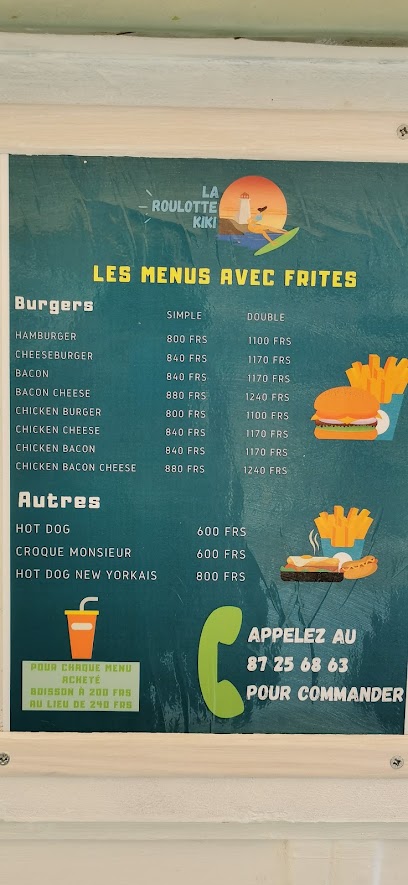
O Douceurs d'Orikel
Discover the exquisite flavors of French Polynesia at O Douceurs d'Orikel, a charming restaurant in Māhina offering a delightful dining experience.
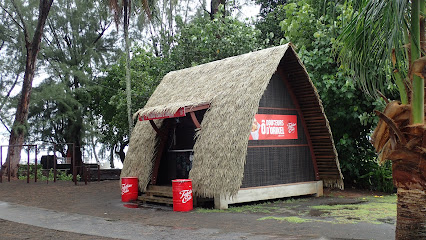
Chez Pavo
Experience the best barbecue in Mahina at Chez Pavo, where flavor and atmosphere combine for an unforgettable dining experience.
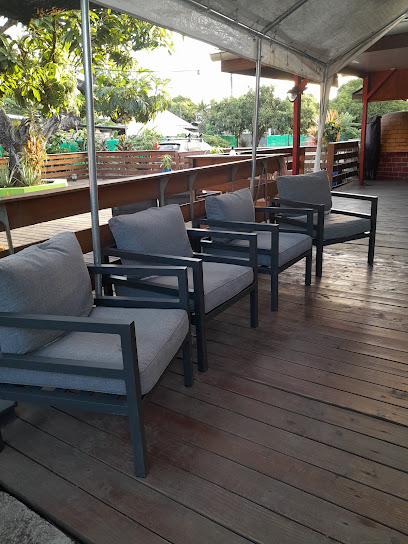
Wong Paul
Experience authentic French Polynesian cuisine at Wong Paul in Mahina, where local flavors meet a cozy ambiance.

Local Phrases
-
- HelloIa ora na
[Yah oh-rah nah] - GoodbyeNana
[Nah-nah] - YesE
[Ay] - NoAita
[Eye-tah] - Please/You're welcomeMāuruuru
[Mah-roo-roo] - Thank youMāuruuru
[Mah-roo-roo] - Excuse me/SorryPārahi
[Pah-rah-hee] - How are you?Aita pea rā?
[Eye-tah pay-ah rah] - Fine. And you?Māuruuru. E oe?
[Mah-roo-roo. Ay oy] - Do you speak English?E mea oe e haere i te reo anglais?
[Ay may-ah oy ay hare-ay ee tay ray-oh ang-lay] - I don't understandAita au mārama
[Eye-tah ow mah-rah-mah]
- HelloIa ora na
-
- I'd like to see the menu, pleaseE mea i te haere i te meni, māuruuru
[Ay may-ah ee tay hare-ay ee tay may-nee, mah-roo-roo] - I don't eat meatAita au e kai e te manu
[Eye-tah ow ay kye ay tay mah-noo] - Cheers!Manuia!
[Mah-noo-ee-ah] - I would like to pay, pleaseE mea i te uita, māuruuru
[Ay may-ah ee tay wee-tah, mah-roo-roo]
- I'd like to see the menu, pleaseE mea i te haere i te meni, māuruuru
-
- Help!Aita!
[Eye-tah] - Go away!Hina!
[Hee-nah] - Call the Police!Tā te gendarmerie!
[Tah tay jen-dar-may-ree] - Call a doctor!Tā te taote!
[Tah tay tao-tay] - I'm lostAita au i te mita
[Eye-tah ow ee tay mee-tah] - I'm illAita au ora
[Eye-tah ow oh-rah]
- Help!Aita!
-
- I'd like to buy...E mea i te faahoro
[Ay may-ah ee tay fah-ah-ho-ro] - I'm just lookingE mea i te titau
[Ay may-ah ee tay tee-tow] - How much is it?E aha te moni?
[Ay ah-hah tay mow-nee] - That's too expensiveTe moni e kai
[Tay mow-nee ay kye] - Can you lower the price?E mea te haere i te moni?
[Ay may-ah tay hare-ay ee tay mow-nee]
- I'd like to buy...E mea i te faahoro
-
- What time is it?E aha te haapiti?
[Ay ah-hah tay hah-ah-pee-tee] - It's one o'clockE tahi haapiti
[Ay tah-hee hah-ah-pee-tee] - Half past (10)E haamāhuru
[Ay hah-mah-hoo-roo] - MorningPoipoi
[Poy-poy] - AfternoonAō
[Ah-oh] - EveningAha
[Ah-hah] - YesterdayArohe
[Ah-roh-hay] - TodayA tenei ra
[Ah tay-nay rah] - TomorrowApare
[Ah-pah-ray] - 1Tahi
[Tah-hee] - 2Rua
[Roo-ah] - 3Toru
[Toh-roo] - 4Maha
[Mah-hah] - 5Rima
[Ree-mah] - 6Ono
[Oh-no] - 7Fitu
[Fee-too] - 8Varu
[Vah-roo] - 9Iva
[Ee-vah] - 10Ahuru
[Ah-hoo-roo]
- What time is it?E aha te haapiti?
-
- Where's a/the...?I te aha te...
[Ee tay ah-hah tay] - What's the address?E aha te tahi faaahiti?
[Ay ah-hah tay tah-hee fah-ah-hee-tee] - Can you show me (on the map)?E mea e haere i au (i te mahere)?
[Ay may-ah ay hare-ay ee ow (ee tay mah-hay-ray)] - When's the next (bus)?No te aha te haere i te raahui (miki)?
[Noh tay ah-hah tay hare-ay ee tay rah-ah-hoo-ee (mee-kee)] - A ticket (to ....)E mea i te tiket (i ...)?
[Ay may-ah ee tay tee-ket (ee ...)]
- Where's a/the...?I te aha te...
History of Mahina
-
Mahina, located on the northern coast of Tahiti, is steeped in ancient Polynesian history. The area was one of the first places settled by the Polynesians, who arrived in canoes from other islands around 1000 AD. The rich natural resources and fertile land made Mahina an attractive location for early settlers, who established agricultural practices and fishing techniques that would sustain their communities for centuries.
-
In the 18th century, Mahina witnessed the arrival of European explorers, including Captain James Cook in 1769. Their encounters with the local population marked a significant turning point in the island's history. The introduction of new goods and ideas began to reshape the traditional lifestyle of the Tahitians, leading to both cultural exchanges and conflicts.
-
The early 19th century brought missionaries to Mahina, aiming to convert the local population to Christianity. The influence of missionaries resulted in significant cultural changes, including the introduction of new educational systems and the Latin alphabet. While some traditional practices were suppressed, this period also led to a preservation of certain aspects of Tahitian culture through new forms of expression.
-
During the late 19th century, Tahiti became a French protectorate, and Mahina was affected by the colonial administration and the establishment of plantations. The French introduced new agricultural practices, which transformed the local economy. Additionally, the colonial period saw the construction of infrastructure, such as roads and schools, that connected Mahina to the broader region of Tahiti.
-
In recent decades, Mahina has experienced a renaissance in cultural pride and identity. Efforts have been made to revive traditional Tahitian arts, dance, and music. The neighborhood hosts various cultural events and festivals that celebrate its heritage, attracting both locals and tourists. This revitalization reflects a broader trend across Tahiti to embrace and preserve Polynesian culture amid modernization.
Mahina Essentials
-
Mahina is located about 12 kilometers northeast of Papeete, the capital of Tahiti. The easiest way to reach Mahina is by taxi or rental car from Faa'a International Airport, which is approximately a 20-minute drive. Buses also run regularly from Papeete to Mahina, providing an affordable option for travelers. Look for the 'L' buses that connect the various neighborhoods along the coast.
-
Mahina is best explored by car, as public transport options are somewhat limited. Buses run along the main road, but they may not be frequent. Taxis are available and can be booked via local companies. For a more adventurous option, consider renting a bicycle to traverse the scenic coastal paths and enjoy the beautiful views.
-
Mahina is generally safe for tourists; however, like any place, it's wise to stay vigilant. Avoid walking alone at night in poorly lit areas. While there are no specific high-crime areas, petty theft can occur in crowded places or at popular tourist spots. Always keep your belongings secure and be cautious of your surroundings.
-
In case of emergency, dial 15 for medical assistance, 17 for police, and 18 for fire services. The local hospital is located in Papeete, so for serious medical issues, heading there is advisable. Always have travel insurance that covers medical emergencies, and familiarize yourself with the nearest medical facilities upon arrival.
-
Fashion: Do wear light, breathable clothing suitable for the tropical climate, but avoid overly revealing attire when visiting religious sites. Religion: Do respect local customs, especially during ceremonies. Public Transport: Do be courteous and offer your seat to the elderly. Don’t eat or drink on public transport. Greetings: Do greet locals with a friendly 'Ia Ora Na' (Hello), and a smile. Eating & Drinking: Do try local delicacies like poisson cru and fresh tropical fruits. Don’t waste food or refuse hospitality, as this may be considered impolite.
-
To experience Mahina like a local, visit the local markets for fresh produce and handmade crafts. Participate in community events or festivals if your visit coincides with them. Engage with local fishermen and learn about their traditional methods. Spend time at the beaches, like Plage de Mahina, to soak up the sun and interact with the friendly locals. Don’t miss out on the beautiful sunsets, which are best enjoyed from the shoreline.
Nearby Cities to Mahina
-
Things To Do in Tahiti
-
Things To Do in Moorea
-
Things To Do in Tetiaroa
-
Things To Do in Huahine
-
Things To Do in Raiatea
-
Things To Do in Bora Bora
-
Things To Do in Maupiti
-
Things To Do in Rangiroa
-
Things To Do in Matavera
-
Things To Do in Muri
-
Things To Do in Ngatangiia
-
Things To Do in Avarua
-
Things To Do in Takitumu
-
Things To Do in Avatiu
-
Things To Do in Nikao







